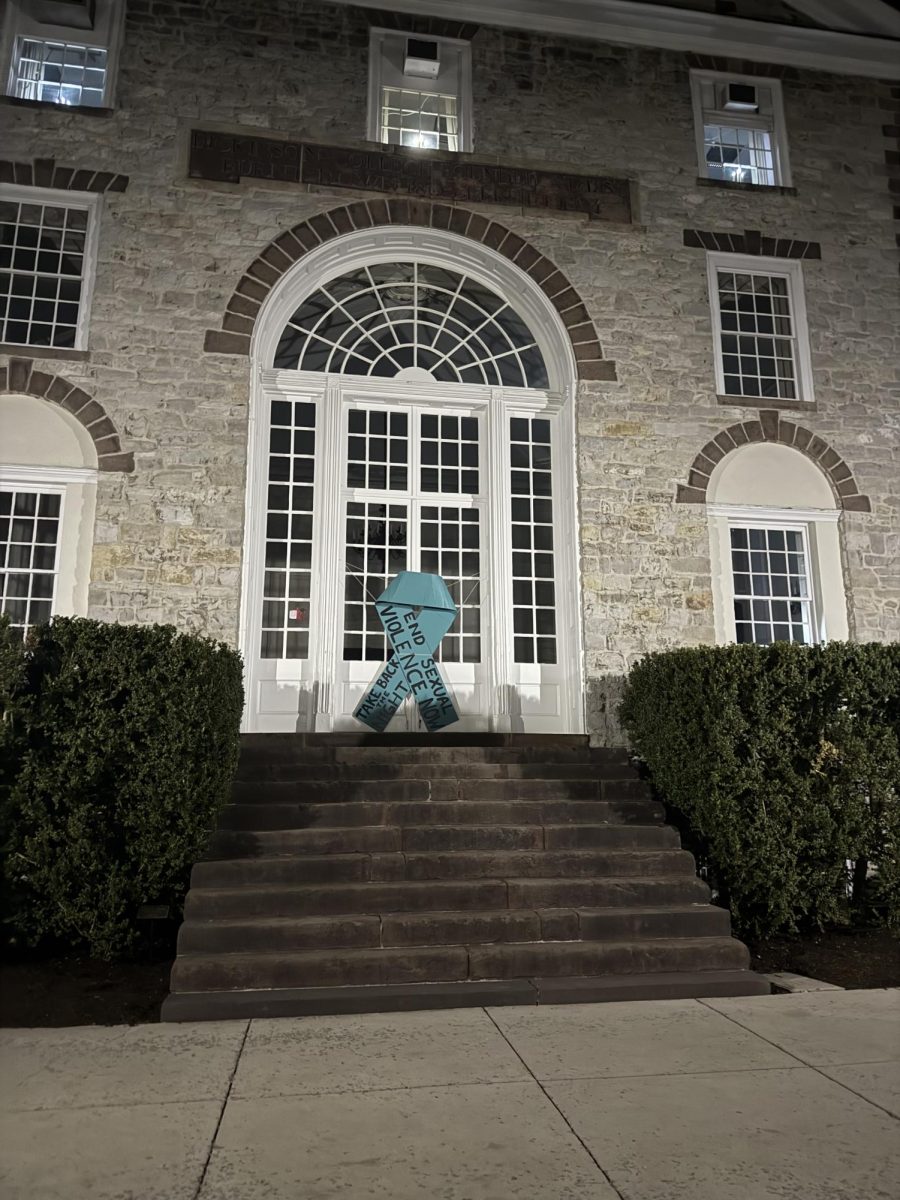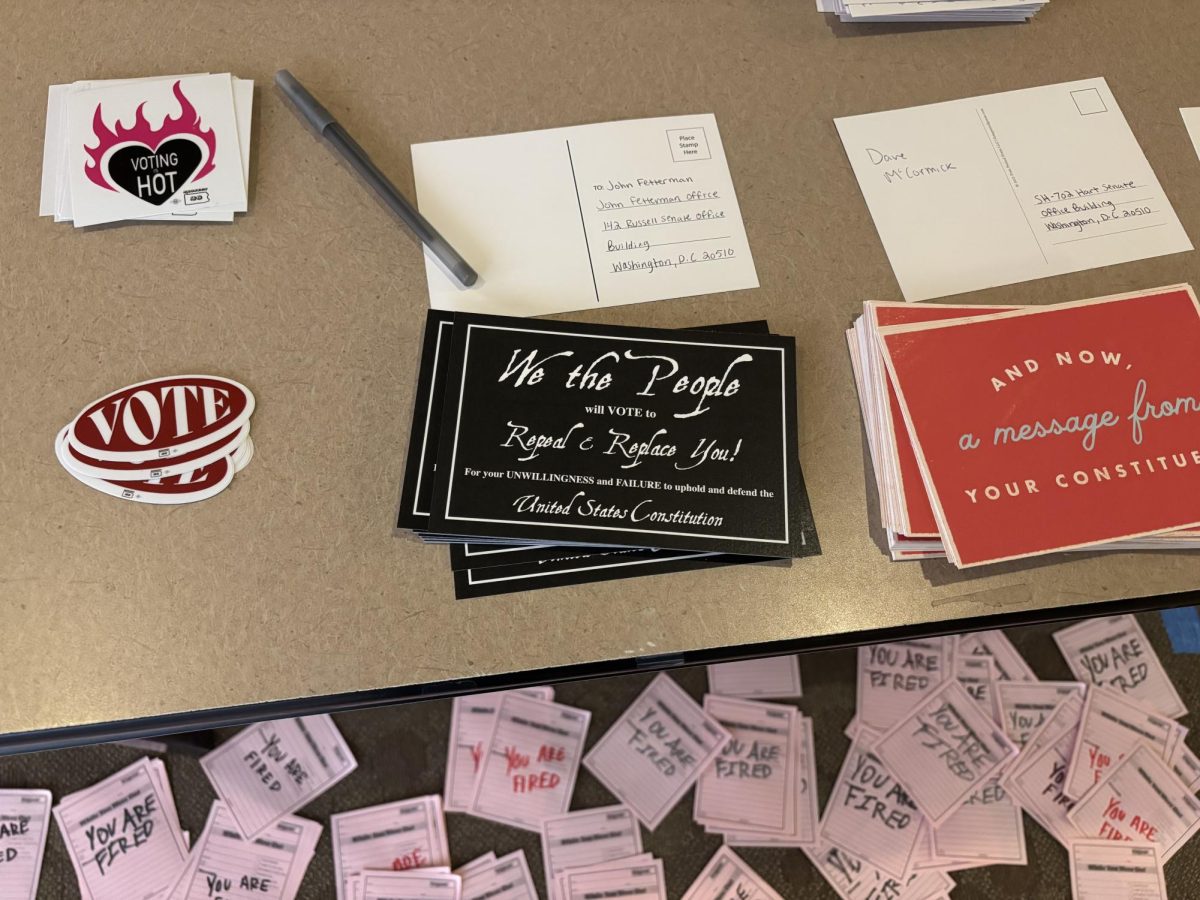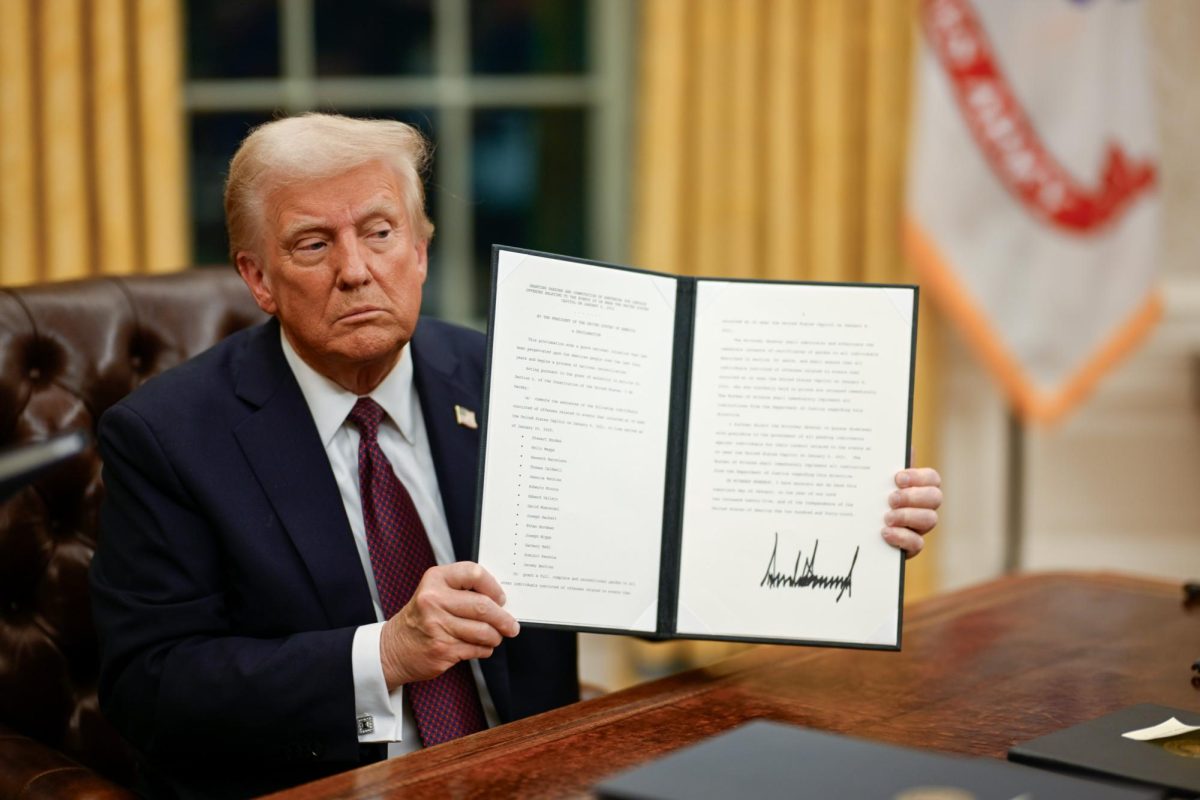After many protests over the last year, including one that ended in police involvement, American University (AU) has banned indoor protests to “promote inclusivity.” Critics of the ban say it infringes on free speech. The Dickinsonian asked Dickinson professors to weigh in.
When asked whether such a ban could happen at Dickinson, Professor of Classical Studies Marc Mastrangelo said, “While I have concerns about free speech on campus, I also have concerns that I don’t want to bring the whole institution down in the name of a certain way of expressing free speech.”
Mastrangelo is a representative of Dickinson’s chapter of the American Association of University Professors (AAUP) which is devoted to protecting academic freedom, tenure, and faculty compensation.
While no major protests have occurred on Dickinson’s campus recently, the College has experienced major protests in the past, such as the demands for Title IX reforms in Feb. 2020.
In late January, the AU administration sent an email to its community announcing a new ban on protests. The email was signed by President Sylvia Burwell and Vice President Bronté Burleigh-Jones, as well as Vice President of Inclusive Excellence, Vice President of Student Affairs, and Director of Athletics and Recreation.
The email included two more new university policies: “student clubs and organizations will be welcoming to all students,” and “posters and university-sponsored events will promote inclusivity.”
Professor of Religion and Sophia Ava Asbell Chair in Judaic Studies, Andrea Lieber noted that the letter was signed by Burleigh-Jones, formerly Vice President of Finance at Dickinson. Lieber said, “given what I know of Bronte’s leadership at Dickinson, I would be inclined to trust her judgment.”
“I think what they did, [that] they came out with an all-out ban right away, was probably ill advised,” said Mastrangelo of the ban, although he acknowledges that the severity of the threats against students was not disclosed.
Mastrangelo explained that the AAUP faculty representative on AU campus said that there “was no input from faculty or students.” Mastrangelo proposes that a better idea would be to come up with a policy on how protests could work in the future.
Mastrangelo said, “people have the right to protest, of course.” He encourages that administration, faculty, and students work together.
According to AU’s student newspaper, The Eagle, the email was a response to a complaint filed by a Jewish advocacy group and multiple protests last year which resulted in campus police removing students from the protest.
The Eagle did not respond to a request to comment.
AU student Jack Pavia ‛26, who is majoring in political science and is the national delegate for Sunrise Movement, said that this ban has “upended campus.” He stressed that the administration does not want to work with students. In fact, they are hiring an outside company called Huron Consulting to “gut the curriculum and raise tuition.”
Like many other universities, AU has seen a variety of reactions to the ongoing Israel-Hamas war. One previous protest was led by Justice in Palestine supporters.
At many other colleges, students have been voicing their concerns about the war, resulting in controversies that have caused both presidents at Harvard University and the University of Pennsylvania to resign. This ban on protests at AU followed in the aftermath of these presidents’ departures.
Pavia said that AU is expecting a new president within a couple of months, if not by the end of the year.
A couple weeks before President Burwell’s letter, new curriculum changes were put in place to address discrimination and prejudices within the college.
Lieber said, “Title VI of the Civil Rights Act of 1964 mandates colleges and universities that receive federal funds (even private institutions) to provide all students ‘a school environment free from discrimination based on race, color, or national origin, including shared ancestry or ethnic characteristics.’ This is done in the same way that Title IX requires schools to protect students from gender discrimination, assault and harassment. Title VI is focused on making sure minority populations have equal access to education.”
Lieber said, “I would support the ban, which prioritizes…safety for all students. The university has to be vigilant about not violating Title VI for its own protection.”
Mastrangelo also said, “I think we can do better than that [at Dickinson, because of our shared governance system between administration, faculty, and students]. I think we can come together as a community, and make sure that each point of view is represented in a civil manner. The ultimate goal here is understanding.”






